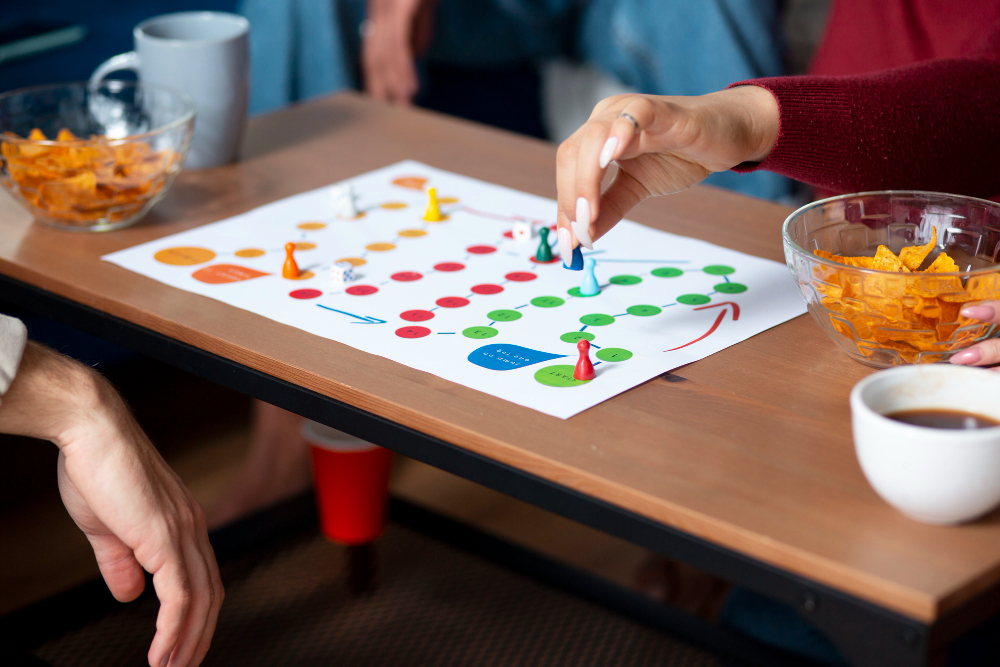Games have always been more than mere pastimes; they are mirrors reflecting the cultural norms and values of societies throughout history. From the physical challenges of ancient games to the social connections fostered by modern ones, their evolution is a testament to societal shifts. Today, in our digital age, games like bingo continue to offer simplicity, fun and a much-needed social escape.
Throughout history, the games we play have echoed the values and challenges of our societies. In ancient times, games like shin kicking were not just for entertainment but were integral to preparing individuals for the physical demands of life in more dangerous environments.
As societies evolved towards peace and community building, so did their games, transitioning from tests of strength and endurance to activities that promote socialization and connection.
Historical Perspective
In ancient societies, games often reflected the necessity for physical prowess and strategy in everyday life. Take shin kicking, for example; a game that sounds bizarre today was once a way to hone one’s resilience and toughness, crucial traits in an era fraught with physical challenges. These types of games were more than fun; they served as preparation for real-world conflicts and survival scenarios.
As time passed and societies became more stable, the nature of games shifted. The focus moved from individual prowess to community engagement. Games started serving as platforms for social interaction rather than just arenas for competition. They began mirroring the societal changes where cooperation and social bonds became more valuable than sheer strength or strategic dominance.
One such game that has persisted through these changes is online bingo. Known for its simplicity and accessibility, online bingo has transformed the traditional game into a digital experience that connects players across geographical boundaries. This evolution has preserved the game’s communal essence while adapting it to modern technological capabilities, allowing players to enjoy the familiar excitement from the comfort of their homes.
Modern Gaming Culture
In today’s fast-paced world dominated by digital screens, traditional games like bingo have found new life among younger generations seeking meaningful connections outside their devices. Unlike complex video games that often require hours of solitary playtime, bingo is easy to learn and encourages interaction among participants. This accessibility makes it an attractive option for those yearning for genuine human connection.
The digital age has not left bingo behind; instead, it has embraced it in innovative ways. Online platforms have emerged as popular alternatives for individuals who want to experience the game’s social aspects without leaving their homes. These platforms offer an interactive experience where players can chat with one another while enjoying their favorite pastime from anywhere with an internet connection.
This resurgence of interest in bingo highlights a broader trend: younger generations are increasingly drawn toward activities that foster real-world interactions amidst a sea of digital distractions. Those interested in following similar cultural shifts in Our Culture Mag’s gaming section will notice how these communal gaming experiences are creating meaningful connections. By participating in these experiences together—whether online or offline—people can forge bonds that transcend technological barriers.
Online Bingo as a Social Connection
The advent of online platforms has transformed how traditional games like bingo are played today. While maintaining its core elements—simplicity, excitement and sociability—online adaptations provide unique opportunities for interaction within virtual communities. Players can join chat rooms where they exchange banter during gameplay or participate in themed events hosted by platform providers.
This evolution showcases how technology can enhance rather than replace our desire for social engagement through gaming experiences tailored specifically toward this purpose. As players connect across geographical distances via digital means instead of relying solely on local gatherings at physical venues such as halls or community centers—their shared enjoyment creates lasting friendships beyond regional boundaries.
The story of gaming culture’s evolution reflects humanity’s journey from survival-based instincts toward communal living centered around shared joys derived from simple pleasures. Games like bingo continue offering valuable opportunities where friendships flourish alongside laughter, echoing down generational lines and reminding us all why we cherish them dearly no matter what form they take.
Today’s gaming landscape, whether through virtual reality simulations or traditional board game nights, serves as a testament to our enduring need for connection. As we gather around tables with snacks aplenty or log into our favorite gaming platforms, we’re not just playing games—we’re participating in a cultural tradition as old as civilization itself, adapting and evolving with each technological advance while maintaining the essential human element that makes gaming such a universal pleasure.

